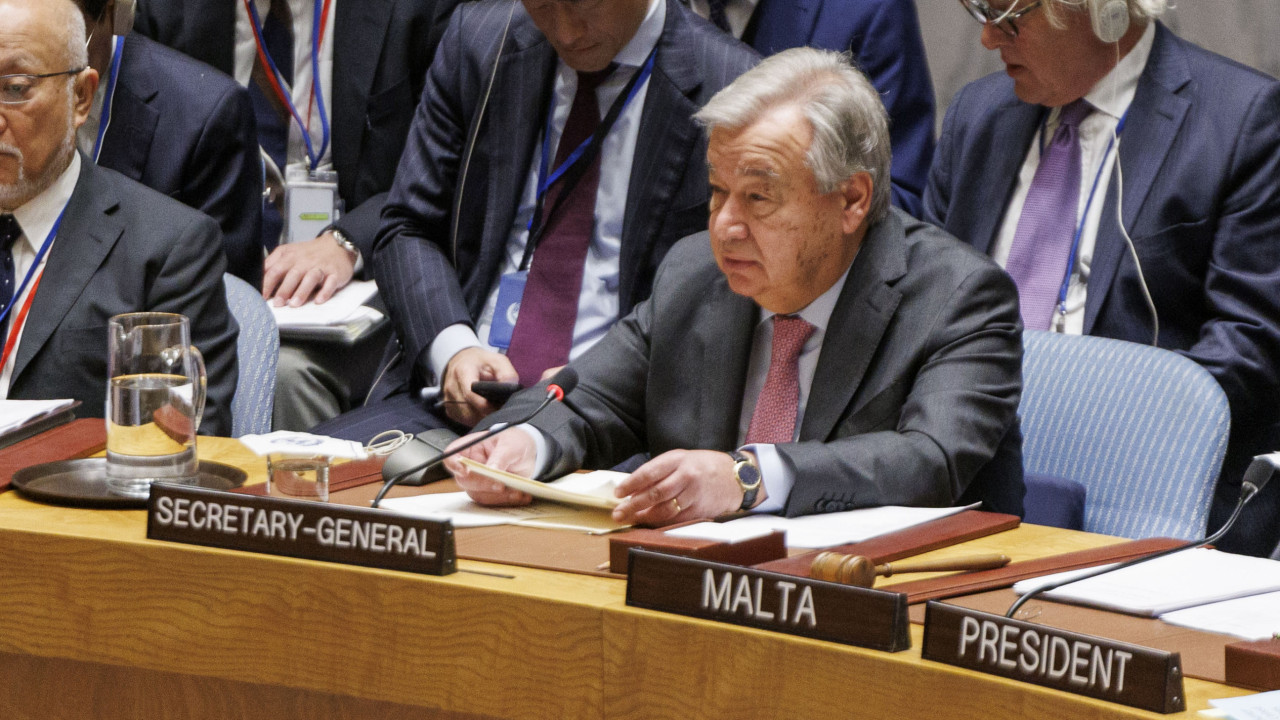
“O Secretary-General recalls that under the Court’s Charter and Statute, the Court’s decisions are binding and trusts that the parties will duly comply with the Court’s order.”Guterres’ spokesperson’s office said in a statement.
Guterres “took note” of the ICJ’s order and, “in accordance with the Court’s statute, will promptly transmit to the Security Council the notification of the provisional measures ordered by the Court”, the statement further says.
The ICJ today ordered Israel to immediately suspend military operations in Rafah, in the south of the Gaza Strip.
Israel must “immediately suspend the military offensive, as well as any other action” in Rafah “that could inflict living conditions on the Palestinian group in Gaza that could lead to its total or partial physical destruction”, according to the ICJ.
The Hague-based court cited Israel’s obligations “under the Convention on the Prevention and Punishment of the Crime of Genocide, and taking into account the worsening living conditions of civilians” in Rafah.
The ICJ also declared that Israel must keep the Rafah crossing open to allow humanitarian aid to enter Gaza “without restrictions”.
Afterwards, the Palestinian ambassador to the UN, surrounded by ambassadors from Arab nations, welcomed the decision of the International Court of Justice.
“We welcome these provisional measures, in particular the cessation of the military operation in Rafah (…) and the call for the reopening of the Rafah crossing point” for the entry of humanitarian aid, Riyad Mansour told the press, stressing that Israel “must respect” these binding decisions “without hesitation”.
Mansour told journalists at the United Nations headquarters in New York that Israel is a party to the International Court of Justice, the UN’s highest court, “and the convention is absolutely clear on this issue.”
“Therefore, Israel has to comply with the decisions and demands of the ICJ,” he stressed.
The decision, the diplomat argued, is essential to save lives “and to allow the Palestinian people to begin to heal the wounds that were inflicted on them by this Israeli aggression.”
The decision was approved by 13 votes in favor and two against, announced the president of the ICJ, the Lebanese Nawaf Salam.
It stems from a South African petition presented to the ICJ in December, two months after the start of the war between Israel and the Palestinian extremist group Hamas.
In January, the ICJ had ordered Israel to do everything in its power to prevent any act of genocide and to allow humanitarian aid to enter the Gaza Strip.
In view of the worsening situation in Rafah, South Africa requested new measures from the ICJ, which were announced today at the court’s headquarters in the Netherlands.
Unlike the International Criminal Court (ICC), also based in The Hague, which tries individuals for war crimes and crimes against humanity, the ICJ attempts to resolve legal disputes submitted by States.
The ICJ is the main judicial body of the United Nations and began operating in 1946, consisting of 15 judges.
The ICJ’s decisions are legally binding, but the court has no means of enforcing them.
[Notícia atualizada às 18h54]
Read Also: Guterres defends greater African representation in the Security Council

Download our free App.
Eighth consecutive year Consumer Choice for Online Press and elected product of the year 2024.
* Study by e Netsonda, Nov. and ten. 2023 product of the year – pt.com
Source: https://www.noticiasaominuto.com/mundo/2567873/decisoes-do-tij-sao-vinculativas-sublinha-antonio-guterres



